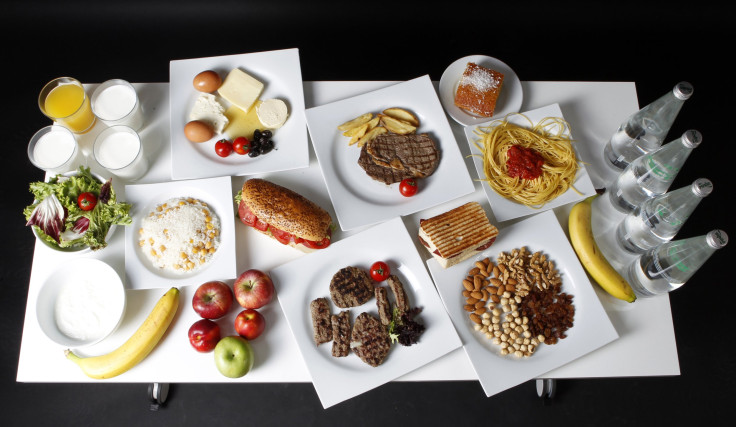Eating Up to Nine Meals a Day Could Help You Lose Weight, Lower Blood Pressure and Speed Up Metabolism

For years, the common wisdom has said to eat three square meals a day. This advice was spouted by mothers and doctors alike. But new research is shaking that up. Multiple studies are finding that eating up to nine meals a day can lower blood pressure and help with weight loss.
Previous reports about the idea of eating little and often had been greeted with skepticism. Researchers said that it could help keep blood sugar and energy levels steady. The newer research builds on that, touting lower blood pressure, lower cholesterol and a lower number on the scale as additional health benefits for eating more meals a day.
One study from the Imperial College London compared the diets of 2,000 people living in China, Japan, the United Kingdom and the United States. All the study participants had the same caloric intake. Half of participants had fewer than six meals a day, while the other half had greater than six meals. Researchers found that the group that ate less often had higher systolic blood pressure and were significantly heavier.
The study's meals consisted of about 300 calories. That is the equivalent of a small serving of rice, chicken, and vegetables. No food is eaten between meals.
The London researchers are planning a subsequent study in which they look at 50 patients with high blood pressure. The patients will either be given three or nine meals a day in order to analyze the effect that their meals have on their blood pressure. Their insulin, glucose and fatty acid levels will also be monitored.
Another study conducted by the University of Athens focused on 2,000 children between the ages of nine and 13. There, scientists found that children who ate five meals a day or greater were nearly a third less likely to have high levels of bad cholesterol. Yet another study from Maastricht University in the Netherlands found that eating up to four meals a day sped up metabolism and lowered the risk of obesity.
It might be easy to wonder what the difference is between eating meals often and snacking a lot. Researchers think that composition of food is less important than the regularity of meals. When the body is unaware of when the next meal will come, it can store fat. Researchers think that frequent meals prevent high amounts of fatty acids. The influx of fatty acids can help to cause buildup of fats in the arteries as well as to high blood pressure.
And, as new research rolls in about the health benefits of eating often, scientists note that there was never a biological need to eat three meals a day. In the nineteenth century, work dictated that we ate at specific times but now, with electricity and long work hours, those times have changed.
Dieticians warn consumers not to take the idea of eating often to mean eating unhealthy items high in sugar and salt. They suggest splitting a regular-sized meal into two.
There is a downside to eating often though. Teeth are more exposed to enamel-dissolving acids produced when bacteria aid with food digestion. So, dentists say, if you want to eat something sweet, it's best to do so after eating savory foods. Saliva production is increased then, providing a greater buffer against acids.



























